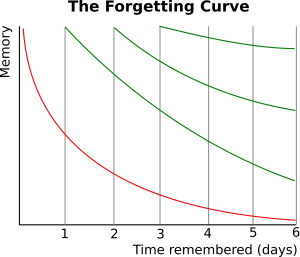BLOG
The 80/20 on Sport


Kerry Pogue
March 20, 2025 • 4 minutes
Category:
Elusive 10 Series
Sports - you either love them or you hate them. But disliking sports shouldn’t preclude you from racking up correct answers in this category. In our introduction to this blog series, I outlined a strategy to improve your quiz performance. Our shared mission? To finally achieve that elusive 10/10 score in Quizified, our daily quiz.
Remember, our goal here isn’t to become an expert in every category. Rather, it’s to focus on high-yielding areas that deliver the biggest performance boost for the least amount of effort. Mastering these facts is just as much about enhancing your powers of elimination as it is about spotting the right answer.
So when it comes to sport, where should you direct your attention?
Focus Area 1: The Olympics
As the largest global sporting event since its introduction in 1896, it’ll come as no surprise that the modern Olympic games are a recurring theme in general knowledge quizzes. Olympic trivia tends to be memorable, diverse and culturally rich – music to the ears of quizmasters the world over. Host cities, standout athletes and historical moments will comprise the bulk of our work here, and we’ll show you why London, Paris and Michael Phelps are always worth a shot in the dark.
Focus Area 2: Football
We revealed last time that quizmasters are incentivized to optimise for engagement. It makes sense then that we’d also shine a spotlight on the Beautiful Game itself. Football is the most popular sport in the world, and with the shear frequency of games played in major leagues around the world, it generates trivia faster than any other. We’ll show you why taking the time to learn the hosts and winners of each World Cup will pay dividends and why knowledge of just a few legendary players will significantly improve your guesswork. Lastly, we’ll help you learn a few facts and achievements in both the English Premier League and the UEFA Champions League, which should help with all things club football.
Focus Area 3: Cricket
With 2.5 billion fans worldwide and a rich history dating back to the mid-eighteenth century, cricket is considered the second-most popular sport in the world and finds itself frequently quizzed as a result. Questions will often focus on World Cup winners, legendary players, and notable records, while familiarity with the various formats could turn wild guesses into educated ones. By the end of this section, you’ll know your test matches from your T20s, and why a modest batsman from rural New South Wales should be your go-to-bluff.
Focus Area 4: Tennis
Tennis, with its global appeal and year-round tournaments, provides another rich source of quiz material. Key topics include the records of the Big Three and details of iconic tournaments like Wimbledon and the US Open. Memorizing information about surfaces, schedules, and standout matches will make this category much easier to tackle.
Focus Area 5: American Sports
Our guide to high-yielding sports knowledge wouldn’t be complete without a nod to American Sports. There are four sports to cover here but don’t panic - knowing just a few major franchises and superstars in each can make all the difference. And, as always, we’ll show you what to guess for the highest probability of success.
Focus Area 6: Niche Sports
We’ll round off our sports series with some high-yielding trivia on niche sports like golf, motorsport and boxing. While these may not appear as often in quizzes, a few memorable achievements can help further boost your potential with minimal effort.
This high-yield approach to sports trivia is designed to give you maximum returns for your time. Ready to dive deeper? Join me in the next article, where we’ll explore the modern summer and winter Olympic and Paralympic Games in more detail.
Spaced Repetition: The Secret to Remembering it All
But before you go, let’s talk about the key to memorizing all these high-yield facts: spaced repetition. In the previous article, I promised to share techniques that leverage cutting-edge memory science. Spaced repetition is the first of these tools – and it’s a game changer.
What is spaced repetition?
Spaced repetition is a powerful learning technique that improves long-term memory by revisiting information at strategically spaced intervals. Based on Hermann Ebbinghaus's 19th-century discovery of the forgetting curve, it prevents memory loss by scheduling reviews just before the information is likely to be forgotten, thereby reinforcing neural connections and enhancing retention.
The chart below shows the forgetting curve in red, illustrating how our memory of newly learned information declines over time without reinforcement. Repetitions on days 1, 2, and 3 successively flatten the forgetting curve, each review strengthening memory retention and slowing the rate of forgetting. With each repetition, the information is retained longer and more reliably over time.

So how can we put this into practice? Spaced repetition involves breaking material into small parts and reviewing them according to performance-based schedules, with trickier items reviewed more frequently. Often facilitated by flashcard applications, spaced repetition adapts to the learner's needs, making it a time-efficient strategy for mastering complex information.
How to use spaced repetition.
Here’s a sample schedule to get you started:
Day 1: Learn the new information.
Day 2: Conduct a first review to reinforce the material and interrupt the forgetting curve.
Day 4: Second review to deepen memory connections.
Day 8: Third review to strengthen retention further.
Day 15: Fourth review to consolidate the material into long-term memory.
Day 30: Fifth review to ensure lasting recall.
This method is widely used by students, professionals and memory enthusiasts to tackle large volumes of information. Whether you’re learning trivia for Quizified or mastering a new skill, spaced repetition is a proven way to retain what you learn.